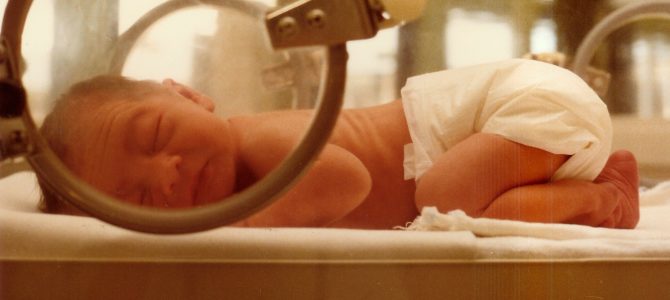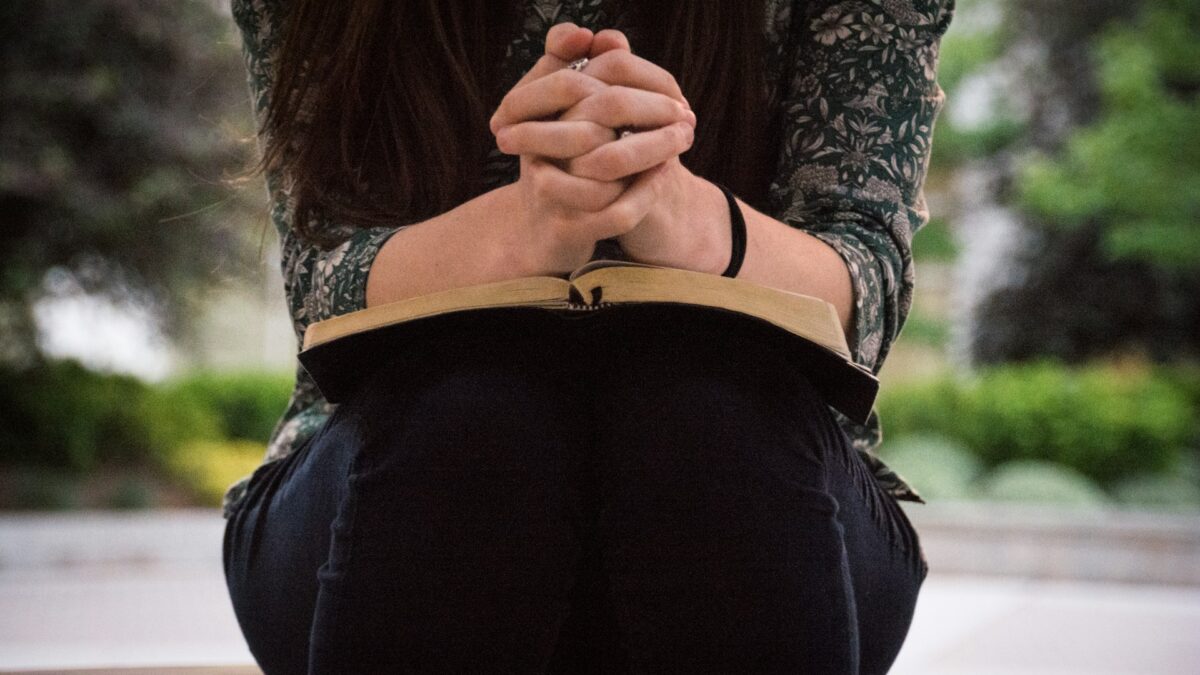
One of the most helpful things celebrities can do with their fame is put a public and relatable face on issues that can be difficult and isolating to talk about. Recently, Nancy Kerrigan, an Olympic medalist figure skater and current contestant on “Dancing with the Stars,” shared that she’s had six miscarriages.
It’s heartbreaking for Kerrigan and her family that they’ve lost so many children, but hopefully her story will help encourage others to do the same. There’s comfort and help available for families who have experienced miscarriage, stillbirth, and infant loss to be had in a place the media too often ignores: the church.
The Christian church has, through the ages, wrestled with the fate of babies lost before birth or in infancy. For families with faith, the pain of losing a child through miscarriage or infant loss should come with the hope of seeing that beloved child again in heaven. Families can seek out their churches and families for comfort when they experience a miscarriage, stillbirth, or infant loss, just as they would after the death of an older child.
This Is a Tricky Theological Subject
The question of the fate of miscarried babies isn’t a new one. The church has from its earliest days struggled with how to remain faithful to God’s word and compassionate to those who are grieving. Theologians from Augustine through Luther to popes and Protestant scholars have all pondered the fate of the unborn and the young child. Different denominations view the question in light of their doctrines around election (where God chooses some to be saved), accountability (whether people unable to understand the gospel must have faith to be saved), and original or inherited sin.
It’s important when discussing any Christian teaching to look at the traditions of the church on the subject, and to carefully read and understand what the Bible says. Church traditions on this vary. Some positions are that elect (or chosen by God) infants go to heaven, as the Westminster Catechism says: “Elect infants dying in infancy are regenerated and saved by Christ through the Spirit; who worketh when, and where, and how he pleases; so also are all elect persons, who are incapable of being outwardly called by the ministry of the Word,” while quietly ignoring what happens to babies not elected.
In lines with eighteenth-century Baptist theologian and pastor Charles Spurgeon, widely known contemporary theologian Dr. Wayne Grudem also talks about election and babies: “How many infants does God save in this way? Scripture does not tell us, so we simply cannot know. Where Scripture is silent, it is unwise for us to make definitive pronouncements.”
Dr. John Piper, a popular Reformed author and teacher today, says all babies and small children will be saved, because they couldn’t understand the gospel: “The way I see it is that God ordains, for his own wise purposes, that at the judgment day all the children who died in infancy will be covered by the blood of Jesus. And they will come to faith, either in heaven immediately or later in the resurrection. And God will not condemn them because he wants to manifest openly and publicly that he does not condemn those who did not have the mental capacities to put their faith in him.”
Babies Can Have Faith in the Womb
Calvinist Mark Driscoll, who still mourns a baby he and his wife lost to miscarriage, doesn’t believe the Bible has a clear answer about miscarriage, and doesn’t want people to overly trust in the absolute necessity of baptism: “We can sympathize with the anxiety a parent feels in losing a child and the concern they have for their child’s fate, but baptism is neither a savior nor any foundation upon which to build a house of hope to live in after the funeral.”
The famous Reformation-Era father of Protestantism, Dr. Martin Luther, in a lengthy piece intended to comfort parents grieving the loss of a child, wrote:
A final word—it often happens that devout parents, particularly the wives, have sought consolation from us because they have suffered such agony and heartbreak in childbearing when, despite their best intentions and against their will, there was a premature birth or miscarriage and their child died at birth or was born dead. One ought not to frighten or sadden such mothers by harsh words because it was not due to their carelessness or neglect that the birth of the child went off badly. One must make a distinction between them and those females who resent being pregnant, deliberately neglect their child, or go so far as to strangle or destroy it. This is how one ought to comfort them. Enough has been said about this. Therefore one must leave such situations to God and take comfort in the thought that he surely has heard our unspoken yearning and done all things better than we could have asked.
The Orthodox Church in America, in their burial rite for miscarried babies, prays: “O Savior and Master of our life: comfort the faithful parents of this departed child with the knowledge that to innocent children, who have done no deeds worthy of tears, are granted the righteousness, peace and joy of Thy kingdom.”
The “Evangelium Vitae,” a Catholic discourse on the importance of life at all stages, discusses the faith unborn John the Baptist expressed, and how children before birth can have saving faith: “the value of the person from the moment of conception is celebrated in the meeting between the Virgin Mary and Elizabeth, and between the two children whom they are carrying in the womb. It is precisely the children who reveal the advent of the Messianic age: in their meeting, the redemptive power of the presence of the Son of God among men first becomes operative.”
What the Bible Says
All of this talk about church tradition needs to circle back to what scripture says on the subject as the final authority. Church traditions and doctrines have to be faithful to God’s word. We know that Christ loves children, including the littlest ones. In Luke 18:15-16, he admonishes his disciples for trying to keep children away from him: “Now they were bringing even infants to him that he might touch them. And when the disciples saw it, they rebuked them. But Jesus called them to him, saying, ‘Let the children come to me, and do not hinder them, for to such belongs the kingdom of God.’”
The biblical King David lost a young son, and told his advisors and friends that he would see his child again: “I shall go to him, but he will not return to me” (2 Samuel 12:23b). And as the “Evangelium Vitae” notes, in Luke 1:41 it was Elizabeth’s unborn baby who first knew Christ when his mother and the pregnant Saint Mary met, and joyfully brought faith to his mother: “And when Elizabeth heard the greeting of Mary, the baby leaped in her womb. And Elizabeth was filled with the Holy Spirit.”
Miscarriage, stillbirth, and infant loss are devastating and heartbreaking, and families who are grieving the death of a baby do not need to also be crushed under fear about the fate of that child. God is present for his people as they mourn, including when they mourn the loss of a baby.









